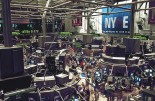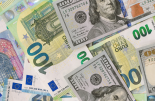Russell Investments: GMO Q4 - Strategists still expect softish landing as Powell pivot postponed
Russell Investments: GMO Q4 - Strategists still expect softish landing as Powell pivot postponed

Russell Investments have released its Q4 Global Market Outlook (GMO) detailing the investment team’s views for the rest of 2022.
Russell Investments strategists believe that slowing core inflation should allow the U.S. Federal Reserve (Fed) to go on hold in early 2023 and that oversold equity-market sentiment means a lot of bad news is already priced in.
“It’s hard to find much good news at present but one source of comfort is that investor sentiment is very negative,” said Andrew Pease, global head of investment strategy at Russell Investments. “We believe this provides some reassurance that markets have accounted for the bad news so far.”
Russell Investments’ cycle, value and sentiment investment decision-making process offers a neutral view on the outlook as Q4 2022 begins. The firm’s strategists summarise their current asset-class preferences as follows:
- Non-U.S. developed equities are preferred to U.S. equities because they are relatively cheaper and will benefit from U.S. dollar weakness should the Fed become less hawkish. “Our valuation methodology is not scoring U.S. equities as cheap but value has improved,” Pease said. “This methodology, however, suggests that non-U.S. equities are now showing value.”
- Emerging market equities could recover if there is significant China stimulus, the Fed slows the pace of tightening, energy prices subside and the U.S. dollar weakens. For now, a neutral stance is warranted.
- High yield and investment grade credit spreads are near their long-term averages, although the team sees the overall yield on U.S. high yield at about 8.5% as attractive. “Spreads will remain under upward pressure if U.S. recession probabilities increase,” Pease said. “We have a neutral outlook on credit markets but will become more positive if a U.S. recession becomes less likely.”
- Government bond valuations have improved and the team believes U.S., U.K. and German bonds offer good value. They view Japanese bonds as still expensive. “Yields have risen sharply in most markets in recent months and the risk of a further significant sell-off seems limited given inflation is close to peaking and markets have priced hawkish outlooks for most central banks,” Pease said.
- Real assets: Global listed infrastructure (GLI) has been one of the better-performing asset classes so far this year, while real estate investment trusts (REITS) have lost more than 20%. The team sees GLI as expensive on several measures, including dividend yields and price-to-earnings ratios. In contrast, REITS show good value on these measures. Regarding commodities, which still comprise the best-performing asset class so far this year, the team sees a potential upside from a recovery in Chinese demand in 2023 as lockdowns ease and more stimulus measures are adopted.
- U.S. dollar has made gains this year on Fed hawkishness and safe-haven appeal during the Russia/Ukraine conflict. However, the team believes it should weaken if inflation begins to decline and the Fed pivots to a less hawkish stance in early 2023. In this scenario, the strategists expect the euro and Japanese yen would be the main beneficiaries.










